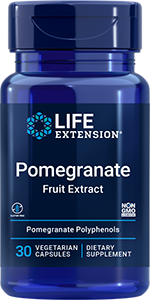| An article published early online on June 3, 2008 in the Proceedings of the National Academy of Sciences reports the prediction of Jasper Rine and colleagues at the University of California, Berkeley that soon-to-be-available personalized genome sequencing will uncover minor genetic flaws that can easily be corrected with nutrition, enabling people to personalize their supplement routine. "Headlines for the last 20 years have really been about the triumph of biomedical research in finding disease genes, which is biologically interesting, genetically important and frightening to people who get this information," Dr Rine. "I became obsessed with trying to decide if there is some other class of information that will make people want to look at their genome sequence." Variations in genes responsible for the production of enzymes involved in metabolism affect the efficiency of these enzymes. While having two copies of a defective gene can result in one of many rare metabolic diseases that can be treated with vitamin supplements, many individuals have only one copy, or have two copies of only slightly defective genes, whose subtle effects on enzymes, Dr Rine’s team found, could also be remedied by vitamin supplementation. The current study examined one human enzyme, methylenetetrahydrofolate reductase (MTHFR), which requires the B vitamin folate to function properly. The enzyme plays a role in DNA nucleotide synthesis. Among 564 individuals, 3 common variants and 11 minor, uncommon genetic variants of MTHFR were found. When these gene variants were synthesized and inserted into yeast cells, the most common variant and 4 of the uncommon variants were found to affect the enzyme's function, yet supplementation of the yeast with folate restored full functionality to all but one of these. One defect in the MTHFR enzyme results in elevations of homocysteine, a metabolite that has been associated with an elevated risk of cardiovascular events. "In those people, supplementation of folate in the diet can reduce levels of that metabolite and reduce disease risk," noted the study’s lead author Nicholas Marini. "Our studies have convinced us that there is a lot of variation in the population in these enzymes, and a lot of it affects function, and a lot of it is responsive to vitamins," Dr Marini stated. "I wouldn't be surprised if everybody is going to require a different optimal dose of vitamins based on their genetic makeup, based upon the kind of variance they are harboring in vitamin-dependent enzymes." Dr Rine observed that variations in enzyme activity could be responsible for the conflicting results of some clinical trials on the effect of vitamin supplements. Enzyme profiling of study participants will be useful in the future to improve trial outcome analysis. The current research, funded in part by the United States Army, may prove to be valuable for those serving in the military. "Our soldiers, like top athletes, operate under extreme conditions that may well be limited by their physiology," Dr Rine stated. "We're now working with the defense department to identify variants of enzymes that are remediable, and ultimately hope to identify troops that have these variants and test whether performance can be enhanced by appropriate supplementation." | 

















